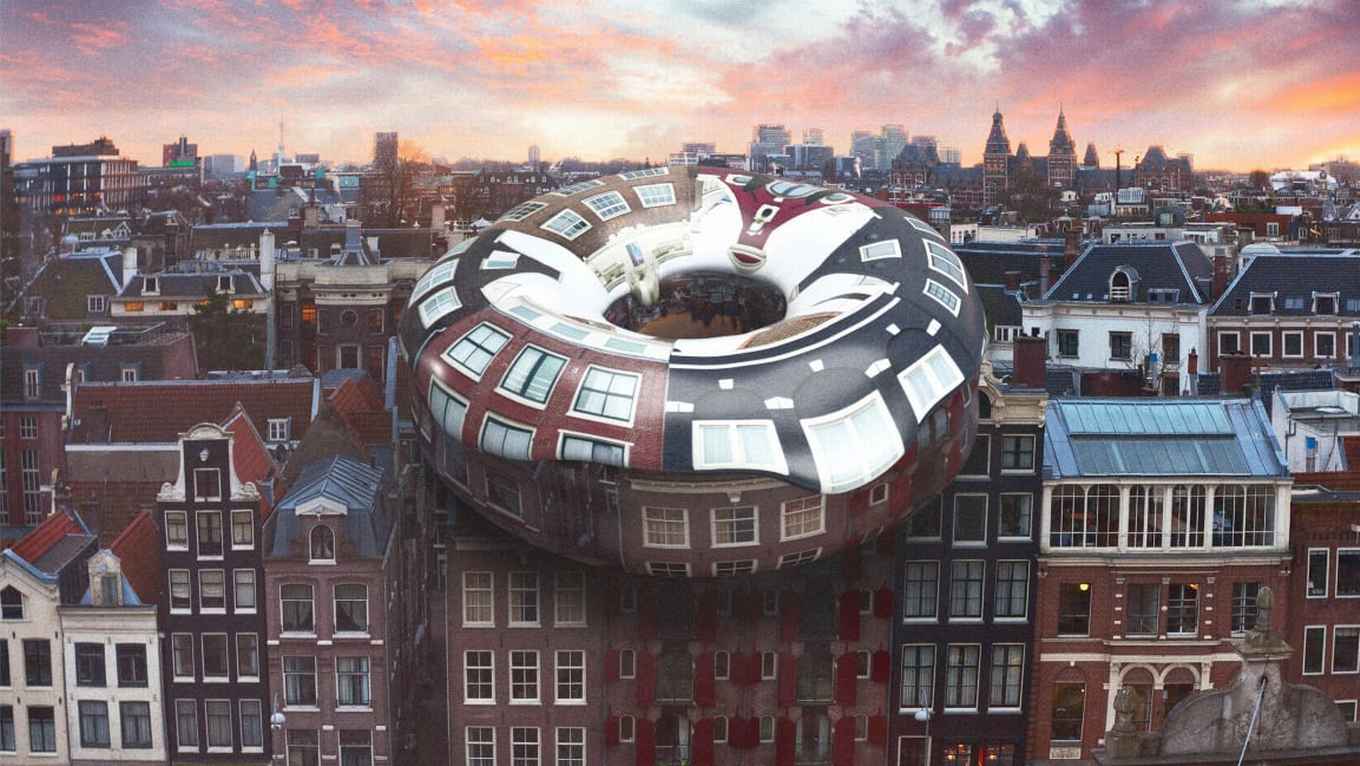Call for interest: UvA academics teaming up for a more sustainable Amsterdam
Dutch version below
11 December 2020

A sustainable city
In April 2020, the Amsterdam City Council adopted a five-year circular economy strategy. The strategy relies on the ‘doughnut model’ created by the British economist Kate Raworth. Raworth’s Doughnut of social and planetary boundaries envisions a world in which people and planet can thrive in balance – in other words, it offers a compass for guiding 21st century prosperity. The Doughnut’s social foundation, which is derived from the social priorities in the UN Sustainable Development Goals, sets out the desired minimum standard of living for every human being. The Doughnut’s ecological ceiling comprises nine planetary boundaries, drawn up by Earth-system scientists in order to identify Earth’s critical life-supporting systems and the global limits of pressure that they can endure. Humanity must live within these ecological boundaries if we are to preserve a stable climate, fertile soils, healthy oceans, a protective ozone layer, ample freshwater and abundant biodiversity on Earth. Between the social foundation and the ecological ceiling lies a doughnut-shaped space in which it is possible to meet the needs of all people within the means of the living planet – an ecologically safe and socially just space in which humanity can thrive.
Numerous public and private organisations have come together in the Amsterdam Donut Coalition to catalyse change. Within the Coalition, individuals and organisations – including Hogeschool van Amsterdam, Pakhuis de Zwijger, TU Delft and Circle Economy – stimulate cooperation in pursuit of changing unsustainable behavioural patterns and system structures. They aim to identify and create the conditions for change. As an institution, the University of Amsterdam is not yet actively involved in this movement.
Academics in action: What can we do?
How can UvA scholars contribute to making Amsterdam circular and sustainable? We aim to bring together scholars from the various faculties of the University of Amsterdam to explore what we can do to contribute to a more sustainable city. To find and tackle current barriers to a Doughnut-proof city, we will send out a ‘call for stories from the city’ in the spring of 2021. With this call we aim to collect stories from individuals, local government authorities and companies all over the city to map the concrete problems that public and private actors face in the transition towards a more sustainable way of doing business or living life. These stories form the basis of our academic deliberations and inform the programme of a radically interdisciplinary conference to be held in the second half of 2021.
What does participation entail?
We would like to invite you to three round table discussions in the run-up to the conference, in which we examine how we can contribute to a sustainable city, both at an individual level and university-wide. We also ask you to contribute ideas with regard to the ‘call for stories’ and how it an reach a diverse group of people. The project team set out below takes responsibility for organising the conference in the autumn.
Get in touch!
Are you interested in engaging with us the upcoming year to explore what we academics and the University of Amsterdam can do? Please send a message in which you indicate who you are, what your expertise is and how your expertise may contribute to a circular and sustainable city. We kindly ask you to get in touch before 15 January 2021. We will follow up by email late January. If you have any further questions, do not hesitate to contact us.
Want to know more?
Do you want to know more about Doughnut Economics and the Amsterdam Donut strategy? Have a look at Kate Raworth’s Ted Talk on Donut Economics. You can read more about the Amsterdam implementation of the Doughnut on the Amsterdam circular strategy policy website and the (Dutch) website of the Amsterdam Donut Coalition.